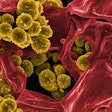Dear LabPulse Member,
In the early days of the COVID-19 pandemic, the U.S. Centers for Disease Control and Prevention (CDC) had a really high profile. The agency regularly held press briefings about the novel coronavirus and updated the number of cases reported by states on its website.
Nowadays, not so much. White House press briefings have stolen the limelight and the CDC and its officials have faded into the background for the most part. So, it's understandable that there has been a lot of curiosity about when CDC guidelines on reopening would be released. This week came reports about a "quiet release" of the reopening guidelines in the form of a 60-page document on the agency's website.
We took a look at the aspects of the document that addressed antibody testing, a hot-button issue for labs as well as the country overall when it comes to reopening for business and putting people back to work. In the document, the CDC noted testing limitations and said that a political consensus is needed -- on top of scientific data -- to define the role these tests should play.
It's not just serology tests that are under the microscope; Abbott's once-exalted ultrarapid ID Now molecular test was recently flagged by the U.S. Food and Drug Administration for reports of false negatives. The agency is working with the company to address discrepancies.
With more than 1.5 million confirmed cases and 95,000 deaths in the U.S. as of May 21, all eyes are now on the states, which have been tasked with forging their own paths for economic reopening.
While the volume of many lab tests has taken a hit during the pandemic, there are a few assays that continue to do well, reported Bruce Carlson, publisher of Kalorama Information, a sister company of LabPulse.com. Blood gas testing is among the diagnostics coming in handy for the assessment of COVID-19 patients.
Carlson has previously reported on the wave of oncology product news that has hit in recent months, hopefully promising a recovery. Labs of course play a vital role in cancer screening, though there have been debates about overtreatment following blood tests. A study just published by the American Cancer Society about prostate-specific antigen (PSA) testing, however, suggests that concerns about overtreatment following screening may have resulted in a loss in detection of early-stage cancers and a rise in late-stage findings.
In another development in oncology, findings of pathologists at Madigan Army Medical Center suggest that benign endosalpingiosis lesions were more common than expected in a retrospective study of gynecology samples, raising questions about their significance in the assessment of risk for ovarian cancer.
The American Society of Clinical Oncology annual meeting is right around the corner, from May 29 to 31. Since it's being held virtually this year, I will finally be assured of getting a front row seat -- from home in San Francisco.



















